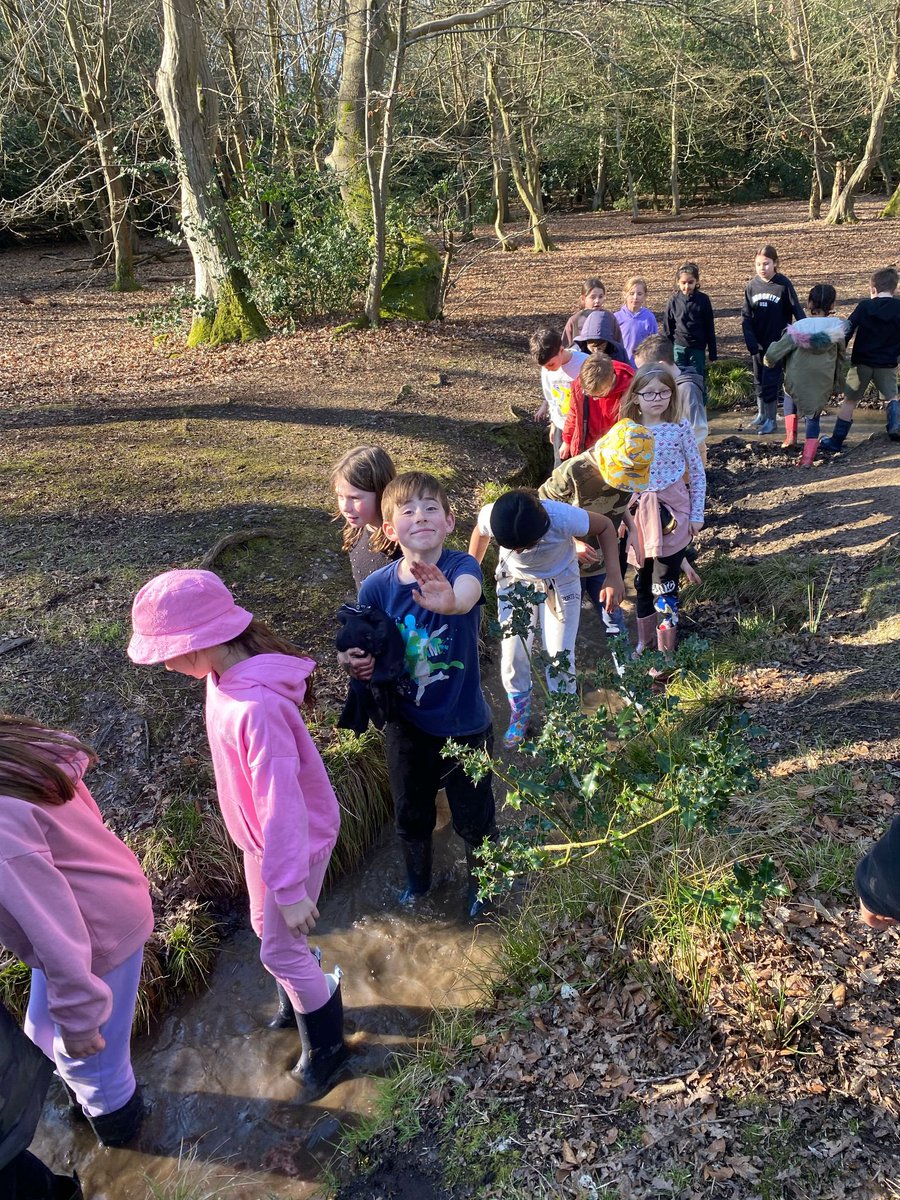Science
Science at Samuel Ryder Academy aims to provide an engaging curriculum that will promote curiosity in the natural world. Through this curiosity we hope students will develop a love of Science and will be motivated to strive to achieve their full potential. Students will have the opportunity to build on the fundamentals they have learnt at KS2 developing their knowledge, understanding and core practical skills. The curriculum will aim to support confident, resilient individuals with a passion for the subject who can go on to become scientifically literate citizens whatever their chosen career path.
We aim to deliver a true spiral curriculum where students are able to revisit and build on the complex topics previously covered. Making full use of our all-through expertise, our bespoke KS2 and 3 curriculums use national curriculum objectives to allow students to progress efficiently to their GCSE course.
KS1
The KS1 science curriculum has two core components, scientific knowledge (e.g. the parts of a flower) and working scientifically (e.g. making predictions, asking appropriate questions). In each half term, students will learn about a given science topic and will learn to apply that knowledge using a given skill focus. The topic and skill focus changes every half term five times, with the remaining half term reserved for a more open-ended STEM project where the children will apply skills learned in science, mathematics and computing.
In KS1, students learn about the following topics and associated skills.
Year 1
- Ourselves – asking simple questions
- Seasonal changes – observing closely
- Everyday Materials – performing simple tests
- Plants – gather and recording data
- Animals – identifying and classifying.
Year 2
- Uses of everyday materials – asking simple questions
- Manipulating Materials – observing closely
- Living things and their habitats – gather and recording data
- Animals including humans (growth and changes) – using observations to suggest answers to questions.
- Plants – identifying and classifying.
KS2
The KS2 Science curriculum continues to build on scientific knowledge and working scientifically and skills learnt during KS1 and follow the same structure. As with KS1, each term ends with an open-ended STEM project where children will apply skills learned across science, mathematics and computing.
Year 3
- Light, Shadows and Mirrors – carefully observing and accurately measuring.
- Forces and Magnets – explaining results
- Animals including humans (bones, muscles and healthy eating) - recognising when to use other sources of information to find answers#
- Plants – asking relevant questions
- Rocks and fossils – identifying and classifying
Year 4
- States of matter -setting up enquiries and choosing equipment
- Electricity - carefully observing and accurately measuring
- Sound – setting up fair tests.
- Living things and their habitats – identifying and classifying
- Animals including humans (the digestive system) – recognising when to use other sources of information to find answers.
Year 5
- Properties and changes of materials – using test results to make predictions on future experiments.
- Forces – Taking measurements using a range of equipment
- Animals including humans (growth and reproduction) – recording data and results of increasing complexity.
- Living things and their habitats – reporting and presenting findings from enquiries.
- Earth and Space – identifying scientific evidence that has been used to support or refute ideas.
Year 6
- Evolution and Inheritance – identifying scientific evidence that has been used to support or refute ideas.
- Light – planning different types of scientific enquiries
- Electricity – planning different types of scientific enquiries
- Animals including humans (the respiratory system and drugs) – reporting and presenting findings from enquiries.
- Living things and their habitats – recording data of increasing complexity in a variety of ways.
KS3
At Key Stage 3 students will study a wide range of Biology, Chemistry and Physics supported by key practical skills. In years 7 and 8 this will mean the introduction of some new concepts. As part of the year 8 options process students will choose whether they want to study Combined or Triple science (subject to attainment during years 7 and 8). In year 9 students will conclude their KS3 journey and start to prepare for their GCSE courses.
Year 7
Year 7 Biology includes the structure and function of cells, reproduction and breathing. Chemistry introduces the particulate nature of matter, how to separate mixtures, the Periodic Table and chemical reactions. Physics builds on KS2 knowledge of forces, energy transfer and sound.
Year 8
Nutrition, digestion, ecology and human systems and exercise will be studied by year 8 as part of Biology. In chemistry students will study the atomic model, patterns in the periodic table and earth chemistry. In. Physics they will study electricity, magnets, electromagnets, the universe and light.
Year 9
In year 9 Biology students will study respiration, photosynthesis, inheritance and evolution in Biology. Types of chemical reactions and environmental chemistry along with pressure and work (building on energy transfer) in Physics. From February half term (for Triple Science candidates) or Easter (Combined Science candidates) students will study Biology, Chemistry and Physics units that will prepare them for their GCSE courses. These aim to consolidate vital knowledge and skills learnt at KS2 and 3 and ensure that students are thoroughly prepared for their chosen GCSE pathway.
KS3 lab book: In order to support students in fully understanding the practical activities they do we ask that they have a lab book. This contains practical methods and diagrams as well as space for students to write their results and draw graphs. The exam-style questions supporting each activity prepare students for the type of questioning that they will see at GCSE. The Key Stage 3 Science Lab book, ISBN: 978-1292256726 is available to buy in the school shop and at most book retail outlets.
Recommended KS3 revision resources: Students will be provided with all the resources that they need to access the curriculum in school. If they feel they need support with homework or revision then BBC Bitesize is a good place to go:
https://www.bbc.co.uk/bitesize/levels/z4kw2hv
If students feel they do need additional support at home, then we would recommend KS3 Science Complete Study and Practice by CGP (ISBN: 978-1841463858 for higher book and 978-1789080674 for foundation).
KS4
From the start of year 10 students will have cemented their choice between Edexcel Combined or Triple Science. Combined Science students will study and range of Biology, Chemistry and Physics topics leading them to gain 2 GCSEs with linked grades, for example: 3-4, 5-5, 6-7 or 8-8. Triple Science students will cover similar Biology, Chemistry and Physics topics but with some extended depth and breadth that will lead to 3 separate GCSE grades.
Combined Science students will complete 6 1 hour 10-minute exams at the end of their course, two each for Biology, Chemistry and Physics. Triple Science students will complete 6 I hour 45-minute exams. Full details of the topics covered are detailed in the documents below.
Key stage 4 lab books: Core practical activities make up a significant proportion of the examinable content for both GCSE Science routes. For this reason, when completing core practicals in school we use a similar lab book to that used at key stage 3. This book also contains practical methods and diagrams as well as space for students to write their results and draw graphs as well as questions in the style that students will see in their actual GCSE exams. Details for the KS4 lab book are in the linked document below.
In order to fully prepare students for their GCSE exams we do recommend that students have a revision guide and workbook at home. The document below contains information on recommended books as well as some free resources available to all students.
Beyond GCSE
In the sixth form students can choose to study a combination of Edexcel Biology, Chemistry and Physics A Levels. STEM (science, technology engineering and maths) subjects play a huge role in innovation and helping to shape the future therefore open up a huge range of career opportunities. Achieving in science A levels will provide universities and employers information not only about academic ability but also about tenacity, work ethic and personal skills.
To study the A Levels, it is required that students achieve a 6-6 in Combined Science or a 6 in the separate Science subject(s) they want to study. For Physics A Level it is also essential that students achieve a 6 in Mathematics; for Biology and Chemistry it is desirable.
Wider Curriculum Opportunities and Careers
The science curriculum at SRA supports the development of a wide range of skills applicable to further education in a wide range of fields. This includes Math's skills, ICT literacy, problem solving and critical thinking. It can also support student in the development of their interpersonal skills such as communication and relationship building and their intrapersonal skills such as adaptability and time management.
We run a vibrant and engaging science club that is well attended by Key Stage 3 students and a Key Stage 4 Science club that is focused on revision and academic development. Science September 2021 we have been running a successful journal review club where students have the opportunity
Coming soon:
Science Fiction film club.
For more details about careers in science follow this link:
https://www.stem.org.uk/system/files/elibrary-resources/2020/02/STEM_Careers%20poster_Digital.pdf
Useful Links
Combined Science:
https://qualifications.pearson.com/en/qualifications/edexcel-gcses/sciences-2016.html
Biology:
https://qualifications.pearson.com/en/qualifications/edexcel-gcses/sciences-2016.html#tab-Biology
Chemistry:
https://qualifications.pearson.com/en/qualifications/edexcel-gcses/sciences-2016.html#tab-Chemistry
Physics:
https://qualifications.pearson.com/en/qualifications/edexcel-gcses/sciences-2016.html#tab-Physics
Biology A Level:
https://qualifications.pearson.com/en/qualifications/edexcel-a-levels/biology-b-2015.html
Chemistry A Level:
https://qualifications.pearson.com/en/qualifications/edexcel-a-levels/chemistry-2015.html
Physics A Level:
https://qualifications.pearson.com/en/qualifications/edexcel-a-levels/physics-2015.html






















